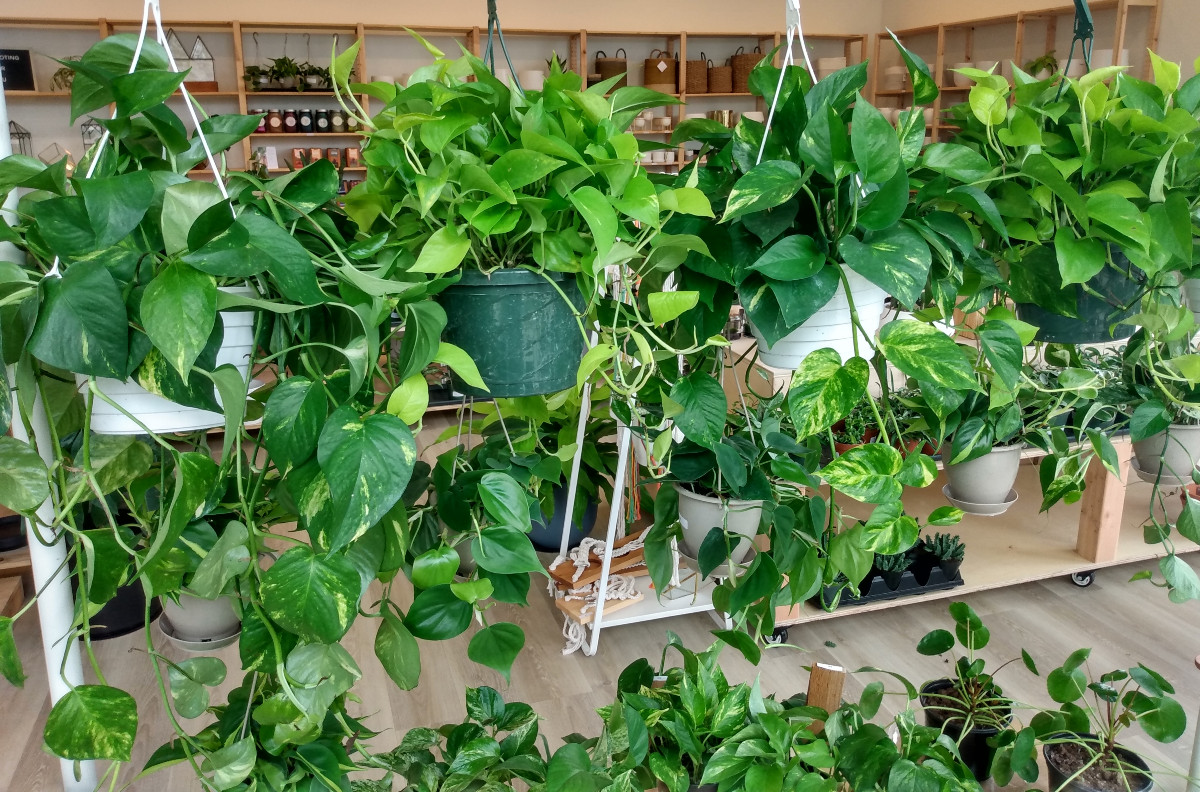Much has been written about our turn to animals as an alternative to human companionship during the pandemic. However, a more unlikely substitute has also become popular in the era of social distancing: houseplants. It may seem strange when they can’t recognize our voices or play fetch, but plants have their own rewards. There is the satisfaction of caring for a living thing and watching it grow. They bring beauty and nature into our homes and help create a soothing, therapeutic atmosphere. Not to mention, it’s fun because each plant has its own personality. I recently talked to Long Luu and Giang Pham, the owners of Plantify in downtown Champaign, about plant care and their business.
Luu and Pham have been plant lovers since their childhoods in Vietnam, where they recall being surrounded by a “tropical paradise” of diverse outdoor and indoor plant life. They continued to care for plants while they both earned graduate degrees from the University of Illinois. However, they struggled to find the materials they needed, like planters with good drainage, from local sources. This gave them the idea to open a store where they would sell plant care supplies and a selection of houseplants.
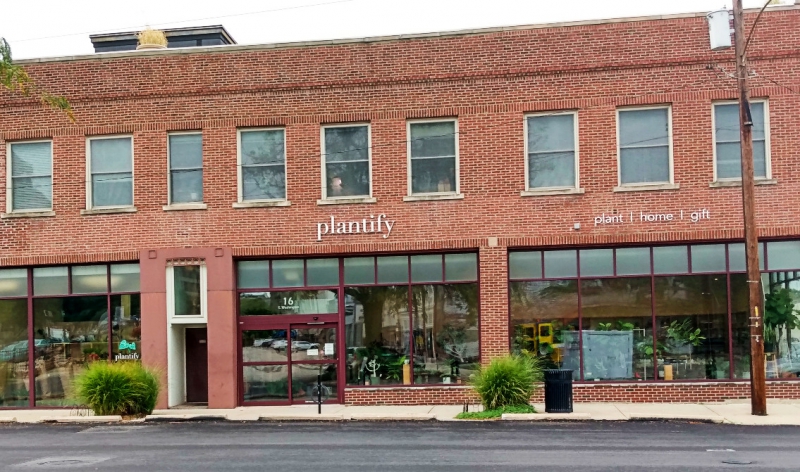
Photo by Michael O’Boyle.
They opened Plantify in June 2020, just as more businesses were beginning to reopen to the public. Luu and Pham recall a shift in people’s attitude towards their homes at this time: they saw a desire to make living spaces into safe and comfortable refuges from the outside world. For them, this is exactly what houseplants can do. “Indoor plants can help freshen up the air, regulate humidity, eliminate toxins, reduce stress, increase levels of positivity, and provide fantastic aesthetics,” they said.
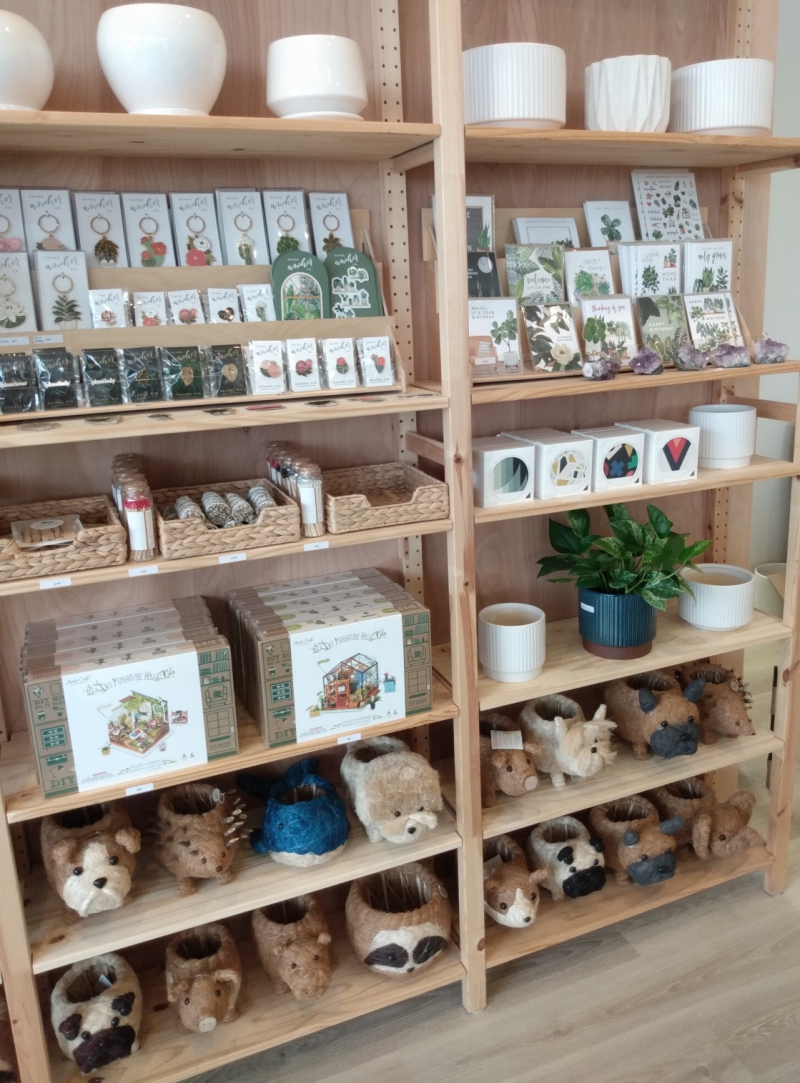
Photo by Michael O’Boyle.
Luu and Pham try to make Plantify both therapeutic and practical for its customers. They take great care to maintain a positive atmosphere and create a “tranquil, happy oasis” that people will enjoy visiting. Indeed, I felt at-ease just walking around the store, listening to soft background music, taking in the faint smell of potting soil, and spending a few moments looking at each plant I passed. They sell other plant related materials, including handmade pottery, 3-D printed pots and vases, and some particularly adorable woven baskets that look like dogs and hedgehogs. They also stock glass décor, candles, crystals, an apothecary selection, and even plant-themed greeting cards and socks.
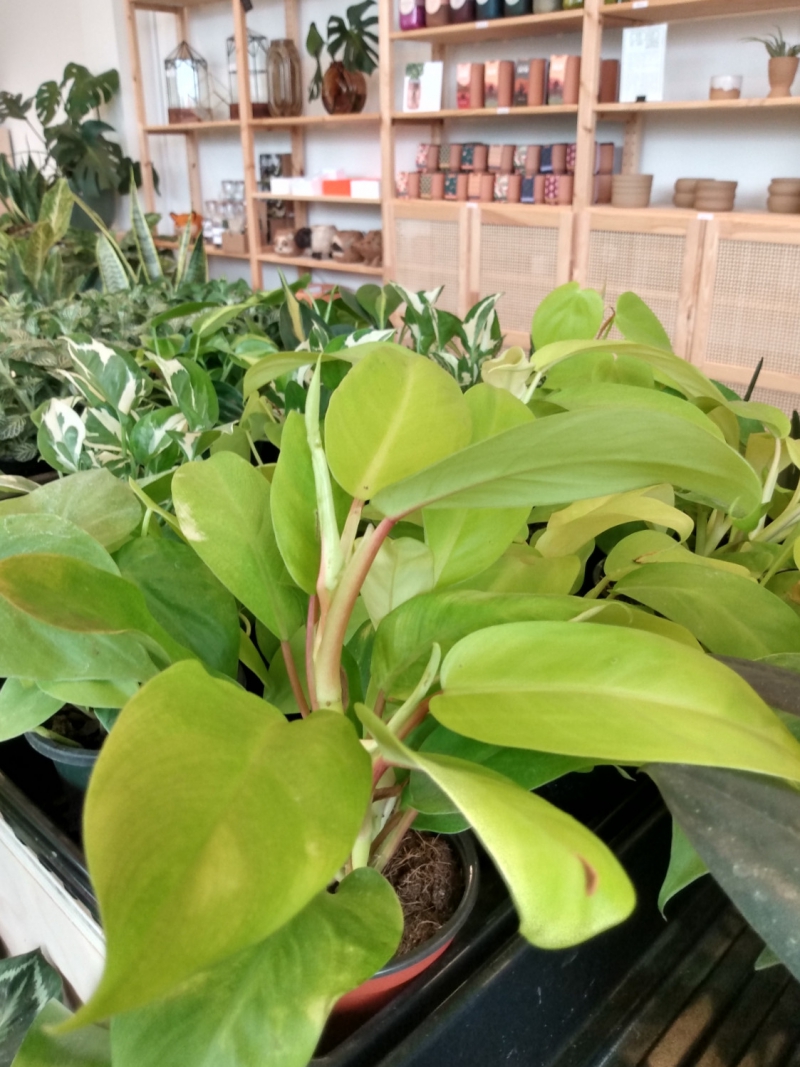
Photo by Michael O’Boyle.
Plant care is less intensive than pet care, perhaps, but plants still require love and attention from their owners. They all require light, water, and fertilizer, but specific needs vary between different species of plants. This is what makes it interesting, since this is where the different personalities come through. Some are resilient, bouncing back after neglect, while some are delicate, reacting to the slightest changes in environment. And some are just divas, withering and wilting only to completely recover after one watering (looking at you, nerve plants). Unfortunately, this is also the most frustrating part, according to Luu and Pham, since it is here that things go wrong. Even when you do everything right, plants can still die from subtle changes in the light or humidity or something invisible like the health of the roots. It can be disheartening to watch a plant die with no apparent reason.
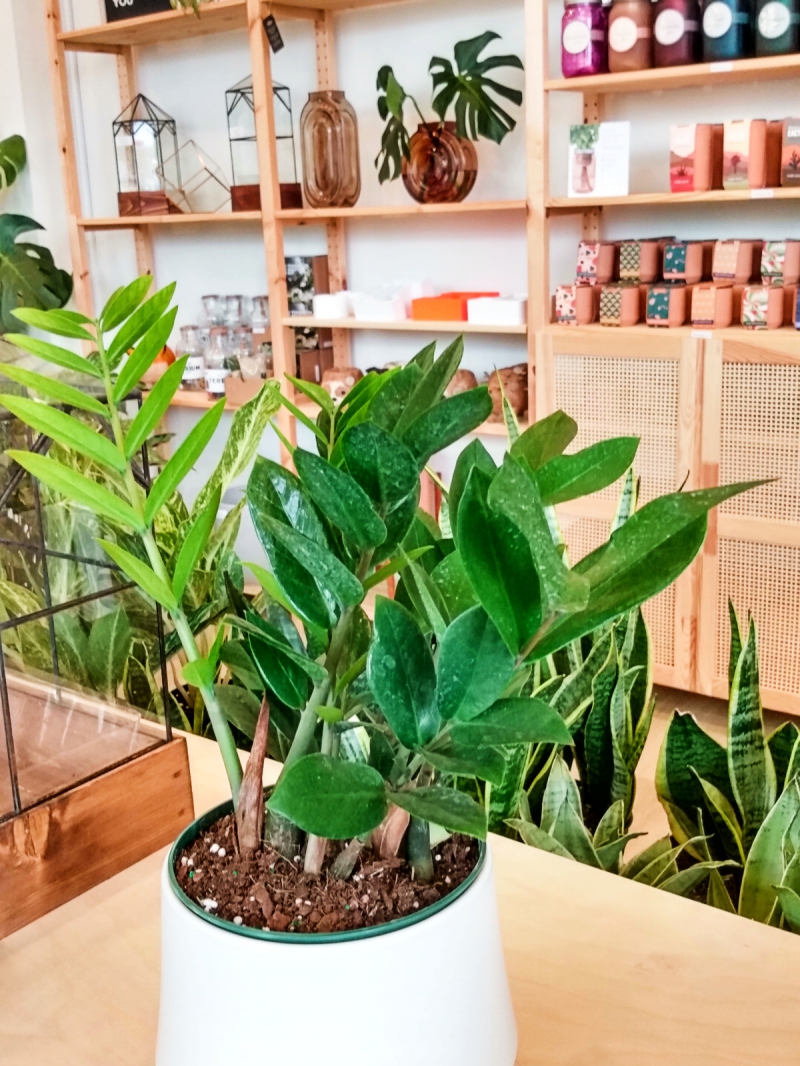
Photo by Michael O’Boyle.
As a plant novice (I tried to grow herbs a couple of years ago and they well all dead within a week), I asked if there were any plants good for someone with no experience. They recommended snake plants, ZZ plants and pothos, since they thrive in low light or indirect sunlight and are forgiving with lapses in watering. This also makes them appropriate for environments like dorm rooms and offices. For areas with lots of light, they recommended cacti and succulents. And then, there are the calatheas and alocasias, which require a high humidity environment and a certain quality of water, or they can be a little moody.
When I asked Luu and Pham about the appeal of plant ownership, they said, in addition to the therapeutic and aesthetic benefits, “people have increasingly realized that plants represent life.” Indoor plants bring the living natural world in our homes, and, like all life, there is joy in caring for them and watching them grow. They are dependent on their caregivers, and many owners feel strong attachments to their plants. (At one point, Luu said that they love their variegated monstera — a particularly rare plant displayed behind the register in Plantify — as their baby.) It’s a commitment, but plants reward us by providing life and positivity in our living spaces.








